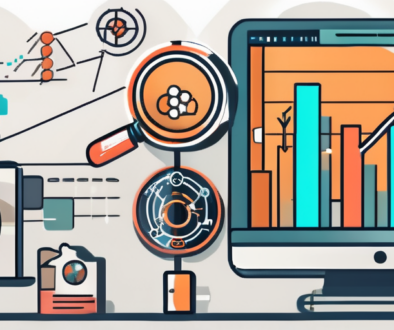AI SEO: Revolutionizing Digital Marketing Strategies
The digital landscape is constantly evolving, and the advent of Artificial Intelligence (AI) has ushered in a new era for Search Engine Optimization (SEO). With AI SEO, marketers can leverage advanced algorithms and data-driven insights to enhance their visibility online and improve their overall marketing strategies. This article will delve into the fundamentals of AI SEO, examine its impact on digital marketing, and explore its future potential, as well as provide actionable insights for implementation.
Understanding the Basics of AI SEO
What is AI SEO?
AI SEO refers to the integration of Artificial Intelligence technologies into search engine optimization practices. It encompasses the use of machine learning, natural language processing, and data analytics to optimize websites for search engines more effectively than ever before.
The main objective of AI SEO is to surpass traditional SEO methods by automating various processes and improving efficiency. By analyzing vast amounts of data, AI tools can uncover patterns, trends, and user behaviors that human marketers may overlook. This leads to more informed decision-making and enhanced strategies tailored to boost website rankings. Additionally, AI SEO tools can adapt to algorithm changes made by search engines, ensuring that optimization efforts remain relevant and effective in an ever-evolving digital landscape.
The Role of AI in SEO
AI plays a pivotal role in modern SEO by offering various functionalities that facilitate optimization processes. Some of the crucial roles of AI in SEO include:
- Data Analysis: AI can process enormous datasets quickly, identifying trends and insights that inform strategic decisions.
- Automating Tasks: Repetitive tasks, such as keyword tracking and performance monitoring, can be automated, freeing up time for marketers to focus on more strategic initiatives.
- Personalization: AI algorithms can analyze user behavior to personalize content and recommendations, enhancing user experience and increasing engagement.
Moreover, AI can enhance content creation through natural language generation, producing high-quality articles and blog posts that align with user intent. This capability not only saves time but also ensures that the content is optimized for search engines from the outset. By leveraging AI-driven insights, marketers can craft compelling narratives that resonate with their target audience, ultimately driving more traffic and conversions.
How AI SEO Differs from Traditional SEO
While traditional SEO relies heavily on manual processes and human intuition, AI SEO introduces a level of automation and predictive analytics that elevates the optimization game. Key differences include:
- Speed: AI can analyze vast amounts of data in seconds, whereas traditional methods may take considerable time.
- Precision: AI identifies specific trends and patterns based on user behavior, leading to more accurate targeting and content creation.
- Scalability: AI SEO solutions can handle growing volumes of data seamlessly, making them highly scalable as businesses expand their online presence.
Additionally, AI SEO tools can provide real-time insights and recommendations, allowing marketers to make swift adjustments to their strategies. This agility is particularly beneficial in competitive industries where staying ahead of trends can significantly impact visibility and revenue. Furthermore, AI can assist in A/B testing different content strategies, helping marketers determine what resonates best with their audience, thus refining their approach continuously for optimal results.
The Impact of AI SEO on Digital Marketing
Enhancing Keyword Research with AI
Keyword research forms the backbone of any SEO strategy. AI enhances this process by providing insights into keyword performance and user intent. Advanced AI tools can suggest relevant keywords based on real-time search trends and user interactions.
Moreover, AI can analyze competitor keywords and contextual search patterns to reveal opportunities that traditional methods might miss. By leveraging these insights, marketers can craft content that resonates with their audience, driving traffic and engagement more effectively. For instance, AI can identify long-tail keywords that are less competitive but highly relevant, allowing brands to target niche markets and capture specific audience segments. This level of granularity not only improves search rankings but also enhances the overall user experience by delivering content that meets the precise needs of users.
AI and Content Optimization
Content remains king in the world of SEO, and AI-driven tools revolutionize content optimization practices. These tools analyze the performance of existing content, assessing factors such as readability, relevance, and engagement rates.
Additionally, AI can recommend improvements to existing content or suggest new topics based on trending queries. By ensuring that content is aligned with user expectations and search engine algorithms, brands can significantly enhance their visibility and SERP rankings. Furthermore, AI can help in personalizing content for different audience segments, ensuring that the right message reaches the right people at the right time. This personalization can lead to higher conversion rates, as users are more likely to engage with content that speaks directly to their interests and needs.
AI in Link Building and Backlink Analysis
Link building is a crucial aspect of SEO, as it enhances a website’s authority and credibility. AI simplifies the link-building process by identifying potential backlink opportunities, analyzing competitor backlinks, and assessing the quality of links in real time.
Furthermore, AI-powered tools can track the effectiveness of link-building strategies, enabling marketers to optimize their efforts continuously. This allows for a more strategic approach to building credible links that drive organic traffic and improve search visibility. In addition, AI can help identify broken links on high-authority sites, presenting opportunities for outreach and potential link placements. By automating much of the link-building process, marketers can focus on creating high-quality content that naturally attracts backlinks, fostering a more sustainable and effective SEO strategy.
The Future of AI SEO in Digital Marketing
Predicted Trends in AI SEO
The landscape of AI SEO is continuously evolving, and several trends are predicted to shape its future. These include:
- Increased Automation: As AI technology advances, expect a higher degree of automation in SEO tasks, minimizing manual intervention.
- Greater Integration: AI will increasingly be integrated with other marketing technologies, enhancing cross-channel strategies.
- Real-Time Adaptation: Future AI tools will be able to adapt in real-time to changing search engine algorithms, ensuring ongoing optimization.
The Role of AI SEO in Personalization
Personalization is becoming paramount in digital marketing, and AI SEO is at the forefront of this movement. By using AI to analyze consumer behavior and preferences, businesses can create tailored marketing messages and content that resonate deeply with their target audience.
This level of personalization enhances user engagement, fosters loyalty, and ultimately drives conversions. As AI continues to evolve, the ability to deliver personalized experiences will only strengthen, providing marketers with a competitive edge. For instance, AI can analyze vast amounts of data to predict future consumer behavior, allowing brands to anticipate needs and deliver content before the customer even realizes they want it. This proactive approach not only improves customer satisfaction but also positions brands as thought leaders in their respective industries.
Challenges and Opportunities in AI SEO
While the advantages of AI SEO are significant, challenges persist. Issues such as data privacy concerns, technological integration, and the need for continuous updates to AI systems can pose hurdles for businesses.
However, these challenges also present opportunities. Organizations willing to invest in robust AI infrastructures and educate their teams on emerging technologies can set themselves apart in a crowded market. Embracing AI SEO not only enhances operational efficiency but can lead to breakthrough insights that drive long-term success. Furthermore, as consumers become more aware of data privacy, businesses that prioritize transparency and ethical AI practices will likely gain consumer trust and loyalty. This shift towards responsible AI usage can create a more sustainable and positive digital marketing environment, where both businesses and consumers benefit from enhanced interactions and experiences.
Implementing AI SEO in Your Marketing Strategy
Choosing the Right AI SEO Tools
With a plethora of AI SEO tools available, selecting the right one for your business can be a daunting task. It is essential to evaluate tools based on specific needs, such as:
- Data Analysis Capabilities: Ensure the tool can analyze large volumes of data efficiently.
- Ease of Use: A user-friendly interface facilitates smoother implementation across your team.
- Integration: The tool should easily integrate with existing marketing platforms to maximize its effectiveness.
Additionally, consider the scalability of the tool. As your business grows, your SEO needs will evolve, and a tool that can adapt to these changes will save you both time and resources in the long run. Look for features that allow for customization and flexibility, enabling you to tailor the tool to your specific industry or niche. Furthermore, reading user reviews and case studies can provide valuable insights into how other businesses have successfully leveraged these tools, helping you make a more informed decision.
Measuring the Success of AI SEO
Measuring the success of any SEO strategy, including AI-driven initiatives, is critical. Key performance indicators (KPIs) to track include:
- Organic Traffic: Monitor the increase in traffic coming from search engines.
- Keyword Rankings: Track the positions of targeted keywords over time.
- Conversion Rates: Measure the percentage of visitors taking desired actions, such as signing up or making a purchase.
In addition to these core KPIs, consider the importance of engagement metrics, such as bounce rates and average session duration. These indicators can provide deeper insights into how well your content resonates with your audience. Using AI tools, you can also analyze user behavior patterns, which can inform future content strategies and help refine your SEO efforts. By taking a holistic approach to measurement, you can better understand the effectiveness of your AI SEO initiatives and make data-driven decisions to enhance your marketing strategy.
Best Practices for AI SEO Implementation
To fully harness the power of AI SEO, businesses should consider the following best practices:
- Stay Informed: Keep abreast of the latest AI developments and SEO trends to ensure your strategies remain relevant.
- Invest in Education: Train your team on AI tools and technologies to maximize their potential.
- Test and Optimize: Continuously test different AI-driven strategies and optimize based on performance data.
Moreover, fostering a culture of collaboration between your SEO and content teams can lead to more effective AI SEO strategies. Encourage brainstorming sessions where team members can share insights and ideas on how to leverage AI tools creatively. This collaboration can also help in identifying gaps in your current strategy and exploring new opportunities for growth. Regularly reviewing your AI SEO performance and adapting your tactics accordingly will ensure that your marketing efforts remain agile and responsive to the dynamic digital landscape.



